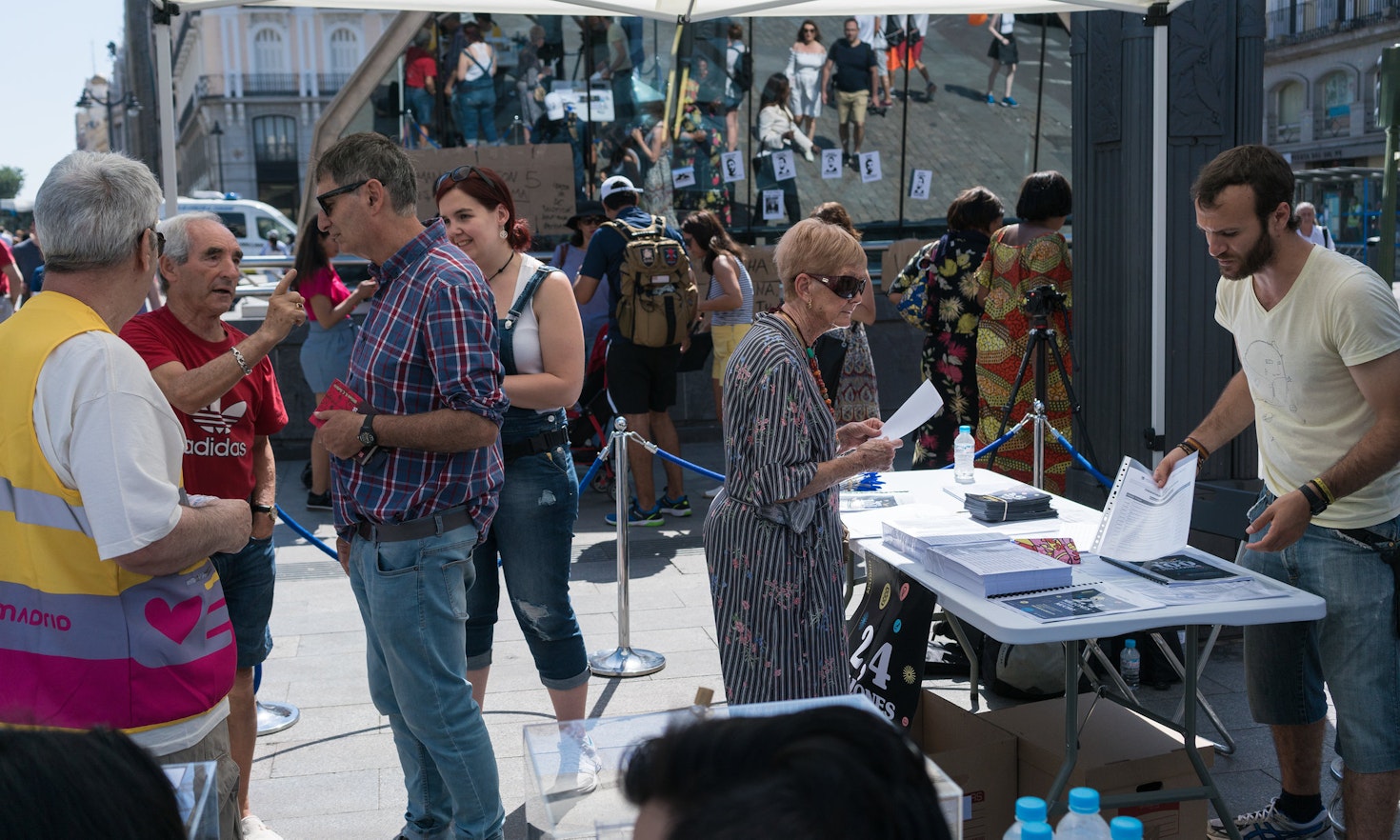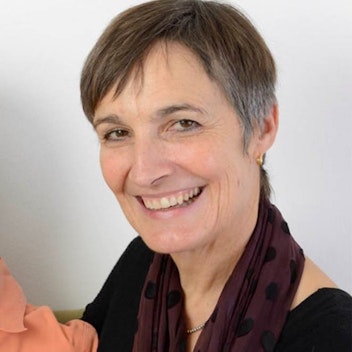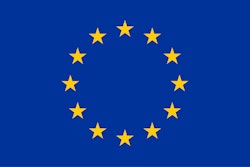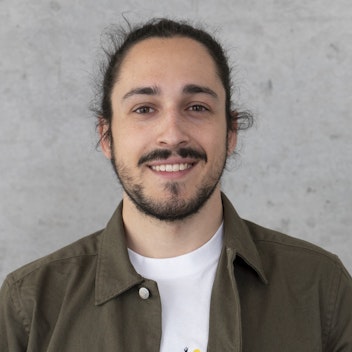
The 21st of all EU-r rights: non-discrimination and how the Charter contributes
 Gabriel N. Toggenburg
Gabriel N. Toggenburg
LoGov’s range of secondments is an opportunity to get out of one’s professional normality. As a specialist on governance and citizen participation and having grown up with the Swiss customs of direct democracy and the political self-confidence of local governments, I had a chance to visit Madrid and its Universidad Autónoma de Madrid, to reflect on citizen participation at a local level. This included reading scientific analyses and talking to experts practicing participatory processes as well as the experts reflecting on them. Below are some insights I gained from the valuable experience.
On my visit to Soto del Real, a municipality in the region of Madrid, I noticed a special wall decoration in the mayor’s office: a broken stick displayed behind glass. Curiosity aroused, the story of the events around the stick were revealed. In the early 1990s, the central state authorities began constructing a new prison against the wishes of the municipalities concerned and many residents. The mayor of Soto del Real along with his colleagues from neighboring municipalities and their local police forces, together with a number of residents, went in convoy to the construction site to stop the work. The mayor of Soto del Real was holding his “palo de mando” (the aforementioned stick), as a symbol of his local authority and an argument with the Guardia Civil officers in charge of the protection of the site ensued. The Guardia Civil on duty simply broke the mayor’s stick and arrested the local authorities for not respecting the orders of the Spanish state. Although the municipality took a series of measures to challenge the central State’s decision, the prison was in fact constructed and is still in use today. Thirty years later, this conflict remains tangible and reminds the local authorities of Soto del Real of the limitations of their power, in the form of a wall decoration in the mayor’s office.
In Switzerland as well, the construction of public infrastructure is often opposed by the local authorities and residents who are directly affected by these projects. This probably occurs as often as it does in Spain. The complex distribution of powers and responsibilities between central, cantonal and local levels often makes local authorities feel helpless and frustrated when it comes to defending the important interests of local residents against decisions taken elsewhere, presumably in the interest of the bigger community. However, I could hardly imagine that a cantonal police officer would dare to arrest a mayor simply for defending the views and interests of the municipality.
In the federal and decentralized power system of Switzerland, local authorities seem to have both more formal and informal weight in decision-making at higher levels. Even if local authorities and residents are not formally competent in taking decisions, they have a series of political instruments – initiatives, referenda, consultation processes, complaint mechanisms – that help them challenge, block or at least slow down any process they are not in favour of. This means that finding a compromise can be less costly and much more rewarding than simply imposing one’s views, even for authorities that would have the formal power to decide. Compromise and cooperation are at the heart of Swiss politics and are also present in the relations between the central, cantonal and local authorities. Multilevel approaches are used to give a voice to possible (local) opposition in the planning of new infrastructure at the cantonal or even central level. This integrates multiple views into the design and balances interests, avoiding troubles even before they occur. Often, executive politicians tend to be elected for their capacities to de-escalate conflicts, their sense of dialogue and compromise more than for their ability to impose their views on others. However, Swiss political processes also have the reputation of being endless, complex and opaque: dialogue and compromise takes time and must take place at different levels, in various arenas, both in the open and behind closed doors. Quick decisions in emergency situations are often very challenging. Other observers say that the long processes are worth the investment as the conciliatory decisions coming out of these processes tend to be broadly accepted and can be implemented relatively easily.
Together with more traditional forms of representative democracy such as elected parliaments, citizen participation has been anchored in the Spanish constitution since 1978. Traditional representative formats of democracy have been challenged in recent years, particularly by the parties to the left of the political spectrum, for representing specific elite interests and party politics, instead of reflecting the “ordinary citizen’s” views and voices. New forms of direct participation have been developed, tested, and institutionalized - for different purposes and topics - involving and mobilizing citizens in different ways. The intensity of citizen involvement can vary greatly: from pure information sharing to the consultation of citizens or citizen’s groups, involving them in the debate around decisions in so-called “deliberative” processes and even in the decision-making itself. At the local level, Spanish municipalities have developed and tested a variety of approaches, from institutionalized formats such as open assemblies, consultation forums, councils and round tables, citizen’s audiences to more ad-hoc mechanisms and topical processes such as surveys, panels, consultations, invitations for propositions and hearings. Interestingly, in Spain, the local regulations on citizen participation are also the legal basis for financial support to local associations of different kinds. These subsidies aim to contribute to the diversity of social and cultural life and the strengthening of civil society and the social fabric in the municipality.
COVID restrictions have shown the importance of virtual channels of information and engagement. Online platforms and methods of citizen engagement had already been tested, established, and further developed by DECIDE MADRID, for example. The communication with residents, all over the city and in specific neighborhoods, and their involvement with local affairs seems to have increased greatly over the last few years. Networks and virtual consultation platforms are used by a considerable number of active citizens, alongside off-line communication tools. As a positive side effect, the virtual platforms make administrative processes more transparent and are increasingly used by the authorities themselves for internal information sharing and effective coordination purposes.
However, observers mentioned a series of challenges and open questions: who is participating in these processes and who is not, despite open invitations? Are all the relevant perspectives represented at consultation tables? Where does the legitimacy to represent ordinary citizens, specific interest groups or neighborhoods and decide on behalf of the local community itself, come from? How do these processes relate to local parliaments (whose members often see such mechanisms as competition for their own roles)? What are the effects and impacts of participatory processes in reality? In most cases, participatory institutions and processes are quite demanding on the participating citizen’s time and engagement, but results are non-binding and often do not really impact the local authorities’ political agenda. In the case of participatory budgeting which in Madrid, currently stands at EUR 50 million for 2 years, the citizens’ selection of projects to be funded is binding. However, many proposals have been criticized as technically unfeasible, not just in regard to the competence of the local authorities, but also in terms of the need of long-term accompaniment of local authorities who lack the resources (and sometimes also political commitment) to do so. Thus, the implementation of ideas and projects is often difficult or even impossible. In other cases, project decisions are politically challenged by neighbors who oppose decisions that were taken without having first been consulted. For example, according to the local authorities in the city of Madrid, a new bike lane funded by a participatory budgetary process even had to be dismantled due to opposition from the neighborhood. In Madrid, few of the proposed ideas and budgeted projects were implemented successfully in the last five years, for various reasons that are currently undergoing detailed evaluation.
Local authorities themselves are not always supportive of participatory processes. Without clear political leadership in favour of citizen participation, local administration sometimes tends to see citizen engagement more as an annoyance to their technical approach than a positive contribution to more effective and responsive service delivery. The legacy of many decades of top-down bureaucracy is still mirrored in the attitudes and behaviours of many public servants – and in the mindset of many citizens who don’t really want to engage with public affairs and with the State beyond elections. Other political trends are set in new “invented” spaces that residents have created themselves along the way in various formats, such as public demonstrations, protests, petitions, or social media campaigns.
Similar to Spain, Switzerland is confronted with a decreasing engagement of citizens at all levels with the traditional participatory processes, be it referenda (that regularly take place at central, regional and local levels) or elections. While citizens can still be mobilized for public affairs that interest them, local authorities have a particular challenge to mobilize citizens to engage with local affairs in a constant and institutionalized way. However, the level of self-confidence and trust of citizens in their own influence as well as in the authorities’ responses seems to be higher than in Spain – at least for those groups of citizens who are able and already motivated to engage with politics. Votes on legislative reforms as well as financial decisions take place regularly, it is possible to initiate ideas and projects at local, cantonal and federal level and make the constituency vote on them. All this contributes to the feeling that citizens have space to influence the political agenda of parliaments and governments, if and when they organize themselves, mobilize support in the community and build alliances. Online communication - with the aim of gathering support for political ideas, or to organize opposition to projects - is increasingly important in the political discourse.
In Spain and in Switzerland, citizen participation has a lot to do with confidence and trust. These ingredients are precious in any democratic process: as a pre-condition, citizens must have confidence in the processes and institutions they are expected to engage with. On the other hand, meaningful citizen participation is expected to strengthen the relationship with the authorities and make them more responsive, effective and transparent. How to consolidate and improve this complex relationship and build trust is a common challenge for all democracies. It can’t be achieved by virtual means only. It also remains difficult everywhere to include, integrate and empower foreign residents and marginalized or vulnerable groups in political processes, usually falling short of the promise of democracy to give a voice to everyone.
Of course, my short stay in Madrid didn’t make me a specialist on citizen participation in Spain. However, those few weeks have made me look at my own context and at the topic with fresh eyes. The ways citizen participation works in Spain helped me see the broader systemic picture of participation and detect elements that are not focused on or tend to be perceived as self-evident in Switzerland. The Spanish experience inspired me to reflect more and learn about the factors for success and failure for citizen participation in Switzerland, Spain and beyond.

This content is licensed under a Creative Commons Attribution 4.0 International license.


This research is part of the LoGov project. The project has received funding from the European Union‘s Horizon 2020 research and innovation programme under Grant Agreement No 823961.

 Gabriel N. Toggenburg
Gabriel N. Toggenburg
 Francesco Palermo
Francesco Palermo
 Mattia Bottino
Mattia Bottino